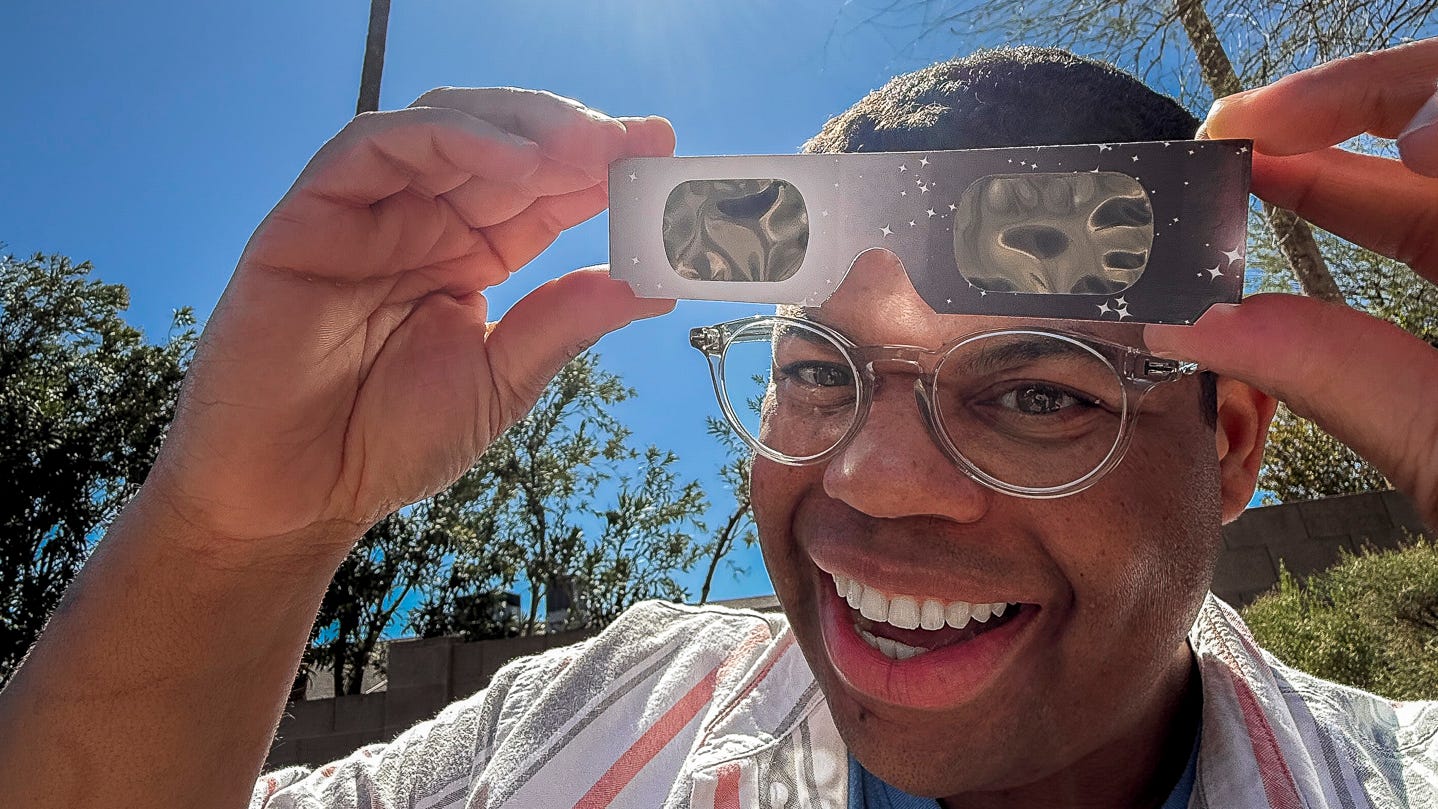What states can see the partial solar eclipse? What time will it be visible? What to know

The moon will partially block the sun's rays this weekend, resulting in a partial solar eclipse that will be visible in parts of the United States.
The upcoming partial solar eclipse will occur during the early hours of Saturday morning. Unlike a total solar eclipse, when the moon completely blocks the sun, the moon only partially obscures the sun during a partial solar eclipse. For those lucky enough to view it, the moon's positioning will produce a sun that appears as a crescent at sunrise.
Those planning to watch the solar eclipse should plan to wear safety glasses or take steps to otherwise protect their eyes from the sun's harmful rays.
Unlike last year's total solar eclipse, during which there were a few brief moments during totality when the sun was shielded and people could safely remove eyewear to take in the sight, during a partial solar eclipse, there is no safe time for sky gazers to view the spectacle with the naked eye. This is because the sun will never be completely covered this time around.
Here's what to know about when the partial solar eclipse will be visible, and what states will be able to see it.
When and where will the partial solar eclipse be visible in the US?
The partial solar eclipse will be visible in parts of North America, Europe and Asia. In the U.S., the partial solar eclipse will be visible in parts of the East Coast around sunrise on Saturday, around 4:50 a.m. EDT and end just before 8:43 a.m., according to the website Time and Date.
Here's what to expect, according to NASA:
What states will have the best view of the partial solar eclipse?
The partial solar eclipse will be visible in the District of Columbia and 13 states in the eastern U.S.: Connecticut, Delaware, Maine, Maryland, Massachusetts, New Hampshire, New Jersey, New York, North Carolina, Pennsylvania, Rhode Island, Virginia and West Virginia.
Where can I get solar eclipse glasses?
Solar eclipse glasses are available to purchase both in-store and online at retailers such as:
- American Paper Optics, the nation's largest supplier of eclipse glasses
- Walmart
- Amazon
- Warby Parker
It is also worth checking your local libraries, astronomical observatories, schools and other public agencies to see if they are giving away eclipse glasses for free. Just be warned: plenty of fakes and imitators exist, so it is always best to get your glasses from a reliable vendor.
Contributing: Saman Shafiq & Eric Lagatta, Paste BN
Gabe Hauari is a national trending news reporter at Paste BN. You can follow him on X @GabeHauari or email him at Gdhauari@gannett.com.
Greta Cross is a national trending reporter at Paste BN. Story idea? Email her at gcross@usatoday.com.